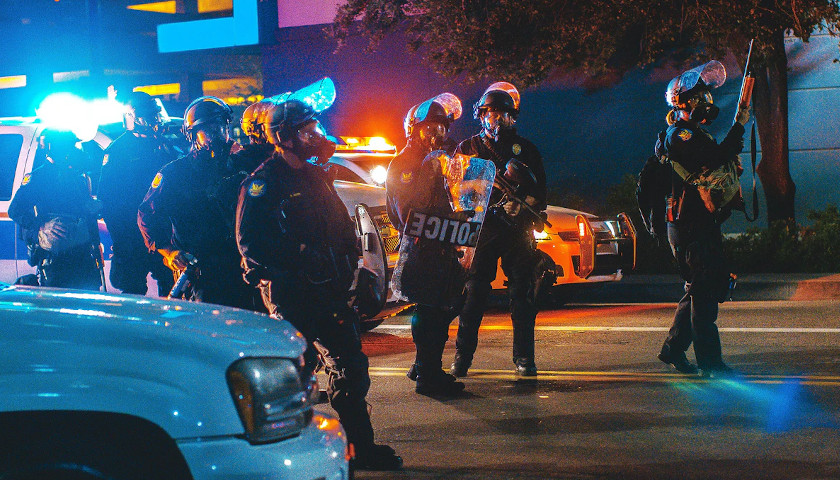by Scott McClallen
Michigan cities with similar populations relied on taxpayers to foot police-settlement payouts ranging from a few thousand dollars to nearly $18 million between 2018 and 2020, according to research conducted by The Center Square.
Freedom of Information Act requests revealed Detroit payouts from police damages in those two years totaled $17.79 million.
Although Detroit has a population three times larger than Grand Rapids, the Motor City’s police payouts cost taxpayers nearly 40 times more.
Detroit, population 672,000, settled 73 times for constitutional violations costing $13.6 million; 42 instances of missing or damaged property costing nearly $26,000; and 34 miscellaneous settlements costing $3.2 million.
One settlement in Detroit cost nearly $5.3 million.
Grand Rapids (population 200,000) paid out more than $455,000 during the same time period. The highest payouts were for pepper-spraying a minor ($125,000); the wrongful arrest of several people ($120,000); and the wrongful arrest and subsequent detainment by Immigration and Customs Enforcement of a U.S. citizen and veteran, allegedly augmenting his post-traumatic stress disorder.
Lansing (population: 118,427) has a few thousand fewer residents than Ann Arbor (population: 121,890), but the capital city paid out nearly $85,000 more in police settlements. Lansing’s highest payouts were for civil rights lawsuits ($87,500) and damaging other people’s cars (nearly $13,000).
Meanwhile, Ann Arbor paid out nearly $15,000. The largest settlements were a lawsuit claiming disability and race discrimination ($8,500) and police car collisions with civilian vehicles and a bicyclist ($6,490).
East Lansing (population: 47,988) paid out $3,409 for a tall police vehicle collision with garage doors as well as police cars backing into vehicles.
Police are fallible like all humans, but “bad cops” cost taxpayers millions of dollars and are rarely financially liable, University of California, Los Angeles Law Professor Joanna Schwartz wrote in the New York University Law Review.
After studying more than 81 law enforcement agencies in the nation, Schwartz found governments paid “approximately 99.98% of the dollars that plaintiffs recovered in lawsuits alleging civil rights violations by law enforcement.”
But Schwartz isn’t against indemnification – she pointed out doctors, lawyers, and even businesses have insurance.
The goal of police settlements is to compensate people whose rights have been violated and also deter future illegal conduct, Schwartz told The Center Square.
While officers might be more likely to exceed constitutional bounds if they aren’t financially liable, they likely couldn’t afford to pay settlements independently.
“And so people whose rights have been violated would go uncompensated or under-compensated,” Schwartz said.
Schwartz pointed to one possible solution: Colorado lawmakers enacted a law in 2020 that requires cities to indemnify their officers but strip officers of qualified immunity for misconduct.
If an officers’ employer determines the officer acted unreasonably or in bad faith, the law requires officers to contribute a portion to a settlement – up to 5% or $25,000, whichever is less. If they can’t afford it, the city must pick up the tab.
The majority of police officers cause few citizen complaints and lawsuits, according to a 2017 Dolan Consulting Group research brief.
The DCG brief cited one study finding that “about 5% of the officers on these agencies were responsible for all of the sustained citizen complaints.”
But it can be hard to fire those few “bad actor” officers, Schwartz said, because the internal investigations aren’t rigorous enough and because many cities have significant protections preventing police departments from firing bad cops, usually built into union agreements.
Schwartz explained in Civil Rights Ecosystems that many factors impact the disparity of police payouts, including whether a person sues, whether they win, how much they recover, what the officer did, and how frequently police use force or exceed constitutional bounds.
– – –
Scott McClallen is a staff writer covering Michigan and Minnesota for The Center Square. A graduate of Hillsdale College, his work has appeared on Forbes.com and FEE.org. Previously, he worked as a financial analyst at Pepsi.





